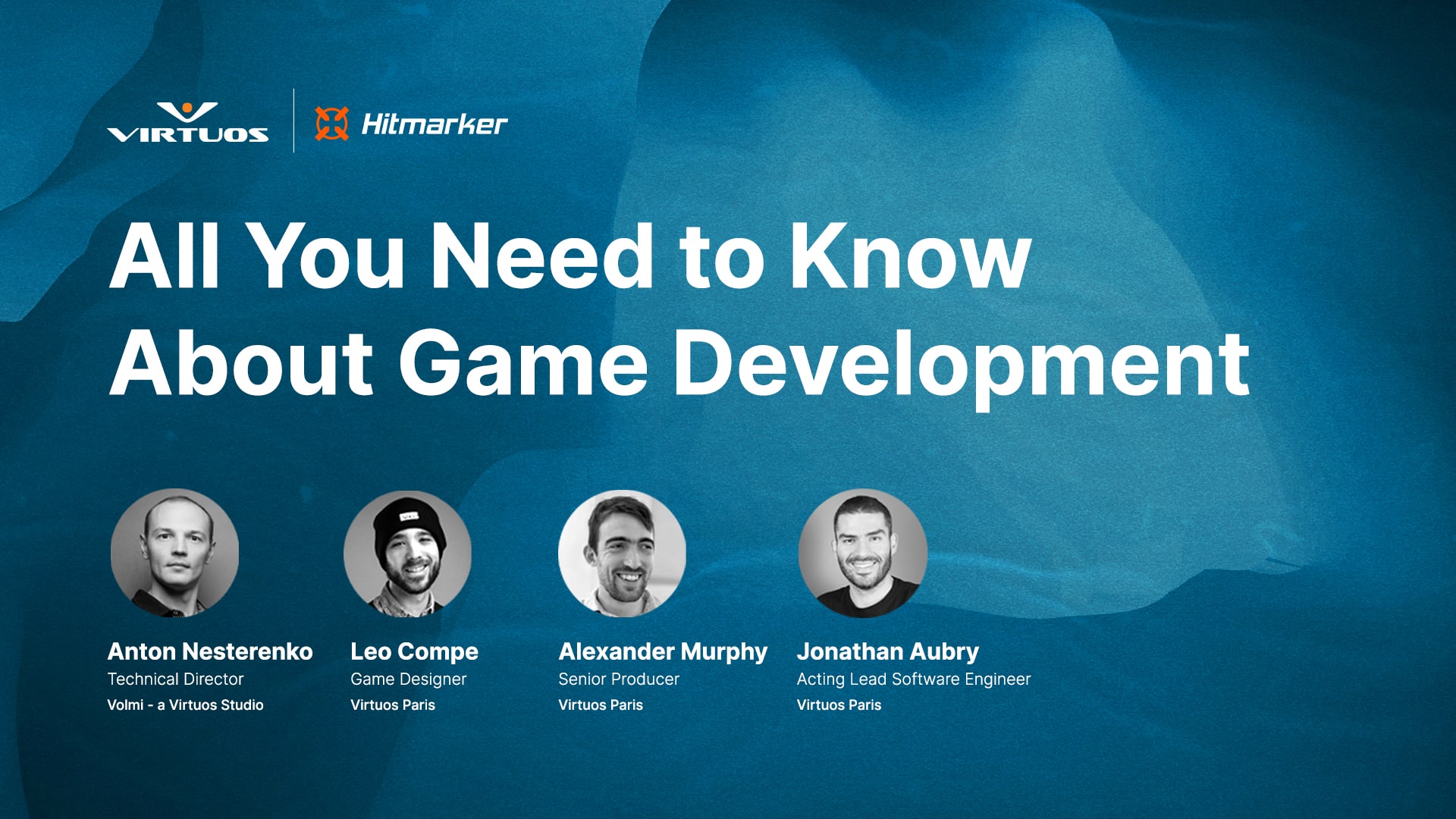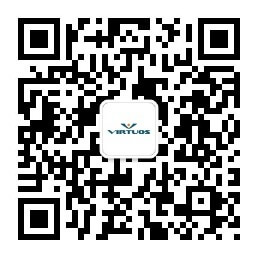On 16 November, we teamed up with Hitmarker, a gaming and esports jobs platform, to host a Discord webinar about working in the games industry. Our expert panel discussed the technical and soft skills required for game development and shared advice on how interested individuals can kickstart and advance their careers.
- Anton Nesterenko, Technical Director, Volmi – a Virtuos Studio
- Leo Compe, Game Designer, Virtuos Paris
- Alexander Murphy, Senior Producer, Virtuos Paris
- Jonathan Aubry, Acting Lead Software Engineer, Virtuos Paris
- Moderator: Rachel Lyon, Community Manager, Hitmarker

Virtuos x Hitmarker Discord event: All You Need to Know About Game Development
Our recruitment team also organized a resume review session for some attendees:
- Daryna Sabaidash, Recruiting Manager, Volmi – a Virtuos Studio
- Fanny Journot, HR Business Partner, Virtuos Labs – Lyon
- Juntong Hu, Talent Acquisition Specialist, Virtuos Paris
- Valeriia Shchelkunova, Talent Acquisition Specialist, Virtuos Paris
Listen to the full panel discussion here:
Essential engines and software in game development
“If you want to work on big games, things that are at the front of the PlayStation store, you need to be doing Unreal Engine. Many big game developers and publishers have their own proprietary engines, but if you’re aiming for that sort of scale, C++ and Unreal are key,” Alexander shared when the moderator asked about useful skills to learn for game development. “If you’re interested in smaller-scale or AA games, there are options like Unity, of course. However, if you’re not looking at Unreal first, and you want to work on big projects, you should be doing that.”
On that same note, Jonathan gave some advice for developers, highlighting that coding software such as Visual Studio “will be your best friend”. He also agreed with Alexander that aspiring developers should focus on learning mainstream engines and coding languages. “For instance, Unreal and C++ will cover most of anything you will face, even with proprietary engines,” he said.
Commonly used software is important in game development, too
Besides engines and coding languages, commonly known and used software is also used in the game development process. Leo shared that as a game designer, he has surprisingly used Microsoft PowerPoint very regularly to communicate game design ideas. “PowerPoint is essential in game design to convey your ideas, to write documentation, and explain how features work so that you can convey your ideas to the whole team. It’s important to know how to use this software – every part and every feature of it, and know a few things about user experience to make a nice and simple-to-read document,” Leo said. He added that common software like Microsoft Excel is also used by level designers to help with organizing metrics, and some game designers even use Microsoft Paint to help convey simple ideas visually to artists.
The importance of soft skills in technical roles
As the speakers discussed the need for non-technical skills in game development, Anton stressed that one of the most important soft skills to have as a game developer is empathy. “In a project, we have guys and girls, people of different ages, languages, different cultures, and it’s very important to be able to understand each other. As soon as you can empathize with each other, you can communicate better and achieve the best result,” he said. Alexander agreed, adding that he and other producers spend most of their time at work with people, and empathizing with colleagues and their challenges is an essential trait to develop.
Besides having empathy, another important soft skill to develop is proactiveness, shared Alexander. “To be a really good producer, you need to be proactive. If you’ve sat in a meeting, and somebody mentioned something that could potentially be a problem down the road, you have to make sure that that’s addressed because, trust me – when it comes back down the road, it will bite you,” Alexander advised.
Be curious, be proactive, and learn to communicate with others
When asked to share their advice for aspiring game developers, the speakers highlighted three points – learn to communicate well with others, be curious, and be proactive. “Work on your communication skills, and that will solve most of the problems you face daily,” Jonathan shared.
“Always try to be part of the bigger team, see the bigger picture, and ask yourself how you can do better the next time.”
Anton and Leo stressed the importance of curiosity and being proactive in learning new things, especially those that drive creativity. “Be part of conversations and work with people who will expand your horizons,” Anton shared. “Besides studying documentation, you can ask directors to share their experience and, through that, improve your professional skills. At Virtuos, we have many projects and different studios where you can communicate with different team members in different countries, which will expand your vision.”
Adding to their point on being proactive, Alexander mentioned that networking is key to landing that dream job. “You need to go on LinkedIn; you need to find recruiters and producers, reach out to them, and sell yourself. It’s about your proactivity,” Alexander shared.
After the panel discussion, our team had a wonderful time chatting and networking with participants who stayed around to ask insightful questions about their career development. A big thank-you to everyone who participated in this event! We hope that our attendees learned something new from our friendly colleagues, and we look forward to seeing more talented individuals join the industry. If you missed our previous Discord event, check out our recap article here. Follow us on LinkedIn to get the latest updates on our upcoming events!

